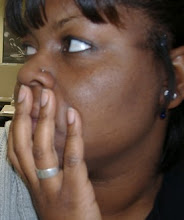I have been doing my best to pick up with listening to podcasts at night rather than doomscrolling and frying my brain on Facebook. I took another chance on Levar Burton reads, and selected a story called "The Best We Can" by author Carrie Vaughn, winner of the 2018 Philip K. Dick science fiction writing award. I am pretty particular about the stories that I like, and I carefully selected this one from a brief blurb about a scientist who discovers an unidentified object in our solar system. I am a huge fan of science, and a minor fan of science fiction, but this story was incredibly well crafted and grounded. It touches on the very real existential dilemma of finding out that there is other intelligent life in the universe.
It made me wonder: what are the existential implications of confirming that there is intelligent life outside of our solar system?
There's a million movies and books written about it, but they always take the perspective of meeting the aliens. We meet, we analyze their physiology, we question are they friend or foe-and those arrivals are always on Earth and unexpected, and the presence of the aliens very much keeps people occupied. There is less focus on "deeper meaning" and more scientific wonder (and, of course, war). Ms. Vaughn's story, however, captured me and made me wonder, because she addresses gaining the knowledge of their existence by finding an empty ship or vessel merely millions of miles from home. There is no need to determine their intent. There is no need to defend our resources. There is only curiosity. Curiosity is a fleeting thing. It's a feeling that takes us for just a moment. We wonder what a thing, or why a thing and by our cynical adulthoods, we stare only for a moment before returning to a less curious, more important moment. Vaughn captures this when she mentions that, while the scientist racks her brain to try to figure out what to do next, the world continues on, as people continue their routines, trying to get a good night's sleep and waking up to decide what to eat for breakfast.
Is that how this would go?
Or would there be bigger waves, more significant shifts in societies? Would it cause massive adherence to religion? Or the opposite-people turning their heads to atheism? Would societies falter in such a wake, criminals running rampant, or would crime decrease if more people thought there was more evidence of a higher, governing power?
Would more people become invested in the sciences, thinking that we should compete, and step up our efforts to learn, do and explore more? Would conspiracy theories take hold and cloud any real attempts at understanding a bigger reality?
Human civilization seems to have lost its grip on awareness of the universe and giving real attention to existential thought. We live as if there is not a vast universe around us, as if our behaviors have significant meaning beyond this moment. Our politics, our policies, our systems-all mean nothing in a universe that will do what it will without our approval. So what would really be the impacts of having a real and concrete reminder that we are but a blip in space?
The story can be found
here, and the audio, as narrated by Levar Burton,
here.
Maybe if we all took a moment to stop and think about what it would mean for us personally, maybe that existential impact might be revealed.









